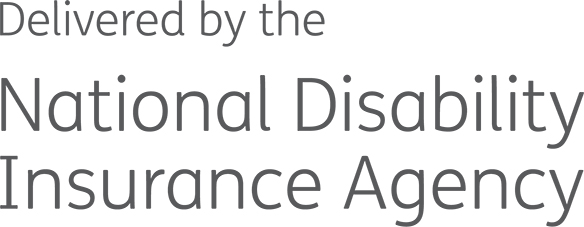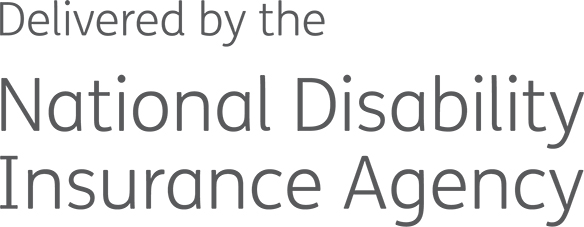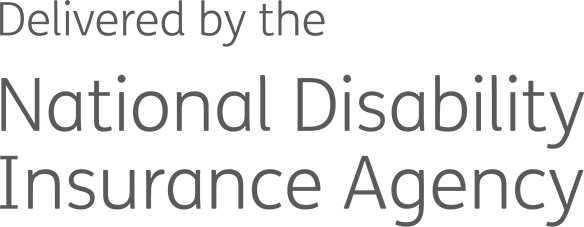
 Our reference:
Our reference: FOI 24/25-1481
GPO Box 700
Canberra ACT 2601
1800 800 110
21 March 2025
ndis.gov.au
Me
By email: xxxxxxxxxxxxxxxxxxxxxxxxxx@xxxxxxxxxxx.xxx.xx
Dear Me
Freedom of Information request — Notification of Decision
Thank you for your correspondence of 8 March 2025, in which you requested access to
documents held by the National Disability Insurance Agency (NDIA), under the
Freedom of
Information Act 1982 (FOI Act).
The purpose of this letter is to provide you with a decision on your request.
Scope of your request
You have requested access to the following documents:
“I request a list of all conditions/diagnoses (however described) that must be referred to
TAB before an application that includes at least one of those conditions/diagnoses can
be approved (that is, ‘access met’).”
Decision on access to documents
I am authorised to make decisions under section 23(1) of the FOI Act. My decision on your
request and the reasons for my decision are set out below.
I have identified 1 document, which falls within the scope of your request.
The document was identified by TAPIB who conducted searches of NDIA’s systems, using
all reasonable search terms that could return documents relevant to your request, and
consulting with relevant NDIA staff who could be expected to be able to identify documents
within the scope of the request.
I have decided to refuse access to 1 document in full.
1
In reaching my decision, I took the following into account:
your correspondence outlining the scope of your request
the nature and content of the documents falling within the scope of your request
the FOI Act
the FOI Guidelines published under section 93A of the FOI Act
relevant case law concerning the operation of the FOI Act
consultation with relevant NDIA staff
factors relevant to my assessment of whether or not disclosure would be in the public
interest
the NDIA’s operating environment and functions.
Reasons for decision
Certain operations of agencies (section 47E(d))
Section 47E(d) of the FOI Act conditionally exempts a document if its disclosure would, or
could reasonably be expected to, have a substantial adverse effect on the proper and
efficient conduct of the operations of an agency.
Document 1 contains information relating to certain operations of the NDIA, specifically:
internal guidance given to staff in relation to the quantum of supports to include within a
participant’s plan in determining the level of supports a participant may require.
The disclosure of this information would reveal methodologies the NDIA uses to assist in
determining levels of support provided to NDIS participants, which is to better ensure that
participants receive supports that are reasonable and necessary. Any disclosure resulting in
the prejudice of the effectiveness of the Agency’s operational methods and procedures
would, or could reasonably be expected to, result in the need for the Agency to change
those methods and procedures to ensure the future effectiveness and sustainability of the
Agency and the Scheme.
I am satisfied that the release of this information would potentially result in the public
disclosure of internal methodologies that, through improper use, would, or could, lead to a
distortion of funding levels that would substantially and adversely affect the integrity of the
NDIS and its financial sustainability. Accordingly, I have decided that the relevant information
in Document 1 is conditionally exempt under section 47E(d) of the FOI Act.
2
Accordingly, I find that disclosure of this information would or could reasonably be expected
to have a substantial adverse effect on the operations of the Agency and is therefore
conditionally exempt under section 47E(d) of the FOI Act.
Public interest considerations – section 47E(d)
Section 11A(5) of the FOI Act provides that access to a document covered by a conditional
exemption must be provided unless disclosure would be contrary to the public interest.
I have not considered any of the irrelevant factors as set out under section 11B(4) of the FOI
Act in making this decision.
In favour of disclosure, I have considered the factors outlined in section 11B(3) of the FOI
Act, and I have determined that disclosure of the relevant information in Document 1 would
promote the objects of the FOI Act by providing access to documents held by the
government and providing access to information.
Against disclosure, I consider that disclosure of the relevant information in Documents XX:
would not contribute to the publication of information of sufficient public interest to justify
the likely harm caused by release
would not enhance Australia’s representative democracy in the ways described in
section 11B(3) of the FOI Act
would not inform any debate on a matter of public importance, or promote oversight of
public expenditure.
While there is limited public interest in the disclosure of information conditionally exempt
under section 47E(d) of the FOI Act, the harm that would result from disclosure is that it
could reasonably be expected to:
prejudice the ability of the Agency to provide guidance to staff and to decision makers in
classifying applicants based on support needs in order to comply with their obligations
and make informed decisions in relation to the quantum of funding to add to each
reasonable and necessary support, which, in turn, helps to ensure the financial stability
and integrity of the NDIS.
In summary, I am satisfied that the factors against disclosure of the information outweigh the
factors in favour of disclosure and that, on balance, it would be contrary to the public interest
3

to release this information to you. Accordingly, I have decided that the relevant information in
Document 1 is exempt under section 47E(d) of the FOI Act.
Rights of review
Your rights to seek a review of my decision, or lodge a complaint, are set out at
Attachment B.
Should you have any enquiries concerning this matter, please do not hesitate to contact me
by email at xxx@xxxx.xxx.xx.
Yours sincerely
Kate (KIM627)
A/Assistant Director – Freedom of Information
Non Personals Team
Complaints Management & FOI Branch
General Counsel Division
4
 Attachment A
Schedule of Documents for FOI 24/25-1481
Document
Page
Description
Access Decision
number
number
Attachment A
Schedule of Documents for FOI 24/25-1481
Document
Page
Description
Access Decision
number
number
1 N/A
Refused Document
REFUSED ACCESS
Exemption claimed:
s47E(d) – certain operations of agencies
1
 Attachment B
Your review rights
Attachment B
Your review rights
Internal Review
The FOI Act gives you the right to apply for an internal review of this decision. The review
will be conducted by a different person to the person who made the original decision.
If you wish to seek an internal review of the decision, you must apply for the review, in
writing, within 30 days of receipt of this letter.
No particular form is required for an application for internal review, but to assist the review
process, you should clearly outline your grounds for review (that is, the reasons why you
disagree with the decision). Applications for internal review can be lodged by email to
xxx@xxxx.xxx.xx or sent by post to:
Freedom of Information Section
Complaints Management & FOI Branch
General Counsel Division
National Disability Insurance Agency
GPO Box 700
CANBERRA ACT 2601
Review by the Office of the Australian Information Commissioner
The FOI Act also gives you the right to apply to the Office of the Australian Information
Commissioner (OAIC) to seek a review of this decision.
If you wish to have the decision reviewed by the OAIC, you may apply for the review, in
writing, or by using the online merits review form available on the OAIC’s website at
www.oaic.gov.au, within 60 days of receipt of this letter.
Applications for review can be lodged with the OAIC in the following ways:
Online:
www.oaic.gov.au
Post:
GPO Box 5218, Sydney NSW 2001
Email:
xxxxxxxxx@xxxx.xxx.xx
Phone:
1300 363 992 (local call charge)
Complaints to the Office of the Australian Information Commissioner or the
Commonwealth Ombudsman
You may complain to either the Commonwealth Ombudsman or the OAIC about actions
taken by the NDIA in relation to your request. The Ombudsman will consult with the OAIC
before investigating a complaint about the handling of an FOI request.
Your complaint to the OAIC can be directed to the contact details identified above. Your
complaint to the Ombudsman can be directed to:
Phone:
1300 362 072 (local call charge)
Email:
xxxxxxxxx@xxxxxxxxx.xxx.xx
Your complaint should be in writing and should set out the grounds on which it is considered
that the actions taken in relation to the request should be investigated.
1




